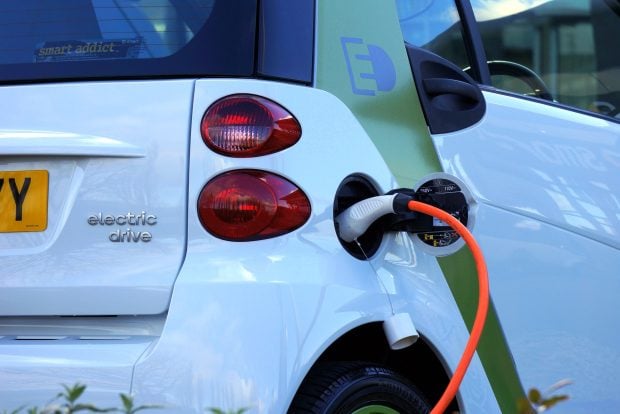From ‘wicked’ problems to brilliant solutions: how governments should work with energy innovators to tackle climate change

Clean energy, accessible to all, is both a human right, and one of the most effective tools the world has to respond to the climate crisis. Yet energy poverty remains, to use the current term for a social or cultural problem that’s difficult or impossible to solve, a stubbornly wicked issue. Nearly a billion people (13% of the world’s population) still lacks access to electricity and three billion (40% of the world) lacks access to the means to cook in a way that will not damage their health.
Since 2001, climate solutions charity Ashden has been showcasing clean, affordable and sustainable energy projects through the annual Ashden Awards scheme. We have found some of the world’s most innovative organisations and governments working on climate solutions and helped them gain publicity and to form vital relationships to help scale their initiatives.
The scale of the climate emergency is such that it is now understood by all governments around the world that change in decentralised renewable energy technologies and business models must happen at an unprecedented rate to meet the parallel and interconnected global goals of universal energy access and zero carbon in the next few decades.
So how can central governments learn from the trailblazers who are developing climate ideas?
Learn from the solutions that already exist
The first and most obvious point for policymakers is that ending energy poverty and tackling the climate crisis are not without their solutions. Technologies and appliances exist that can turn renewably generated electricity into services that can be harnessed for sustainable livelihoods – termed ‘productive-use appliances’ – for example, lighting, drying, pumping, refrigeration, transportation, and welding. And the business and finance models exist that can put the tools of this solar revolution in the hands of some of the most vulnerable people, affordably.
The question is what can governments learn from pioneers about the conditions they can create to make more of this happen?
The award-winning work of the Togolese Renewable Energy Agency (AT2ER) – an Ashden Award winner in 2020 – demonstrates that commitment by a national government to tackling energy poverty in rural settings can unlock economic progress. AT2ER has helped to create new, high-quality jobs (40% of which were for women in engineering), provide first time energy access benefitting women and children in particular, and provide a means to avoid future carbon emissions from coal or gas plants. This was achieved through a combination of specific targets for new household connections, integrating subsidy systems (called the Cizo) for the end-consumers, and working with distributed energy last-mile specialists BBOX and SunCulture. Togo is well on its way to delivering universal energy access by 2030 from rates as low as 8% in some areas.
In Zambia, the innovative Beyond the Grid Fund – Ashden Award winner of the Innovative Finance Award in 2019 – funded by Sweden and implemented by the Renewable Energy and Efficiency Partnership (REEEP), has brought clean energy to 119,000 households and businesses that would otherwise struggle to afford it. Like in Togo, this was a highly coordinated collaboration between national government and the private sector and with international support. REEEP has made it significantly less risky for businesses to enter the country’s off-grid energy market through a very carefully designed results-based framework of incentives that enable private companies to sell solar home systems and clean cooking appliances to the 70% of Zambians that are without these essential services.
Commit to long-term policy and investment in upskilling people
Setting long-term and consistent policy frameworks for developing new markets is key to creating the conditions for the financial investment in enterprises that will innovate and deliver climate solutions, but the potential of the energy access sector will not be realised without the concurrent investment in the people that will power it.
According to the World Economic Forum, a lack of trained people is the number one factor holding back the energy transition across Asia, Africa and Latin America.
Huge inequalities exist in access to training and employment amongst low-income communities and other marginalised groups, especially rural women. This must be addressed if the energy workforce of the future is to be truly realised and a just transition can be achieved in a timescale that will reduce the likelihood of runaway climate change.
There are amazing organisations working to close these skills gaps. Strathmore University in Kenya is turning out graduates ready to work in renewable energy and plugging them directly into projects and programmes across East Africa. And SENDEA Academy in Uganda is a collective of local enterprises that have clubbed together to train people to power SMEs at the frontline of delivering rural electrification through solar technologies. Both organisations have programmes specifically designed for women.
Skilful middle management and executive level leadership are also required for high-growth energy start-ups to navigate the journey through funding rounds, debt and equity raises, people and talent management, and innovation processes. The African Management Institute has recognised the energy access sector as having the huge potential to unlock new jobs for young people so desperately needed on the continent and is catering for the specialities required for managing high-growth businesses in this area.
Yet, still more is required. The most far-sighted governments will think in terms of ecosystems to nurture and nourish the sector. We learn from the Ashden Award winning Indian social enterprise the Bharatiya Vikas Trust, that training is required for financiers to better understand the risk profile of solar enterprises and other innovative energy and climate solutions, so that technology, market and business risks are fairly priced in the cost of lending, thereby increasing access to capital at reasonable rates for SMEs in the sector. To date, the trust has trained more than 15,000 financiers to close the gap in solar financing in the Indian state of Karnataka, unlocking energy from 600,000 solar energy systems that are powering the livelihoods of millions of rural entrepreneurs.
Utilise energy efficiency and renewable energy in job creation as well as decarbonisation
A recent UN Policy briefing paints a very clear picture of the prize for countries that adopt renewable energy as the means to power their economies – energy efficiency and renewable energy create more jobs than the fossil fuel industry. South Africa is taking a lead in harnessing this. By agreeing to work in international partnership with the governments of France, Germany, the UK, the US, and the European Union, it is setting out a just transition pathway, mobilising US$8.5bn in the first phase of financing through various grants, concessional loans, investments and risk sharing instruments, that will accelerate the move away from coal power. Over the next 20 years this will prevent up to 1.5 gigatonnes of carbon emissions and provide hundreds of thousands of new, high-quality jobs in the clean economy.
The challenge will be to ensure that the lessons are being learnt from grassroots innovators and that policy is being shaped to catalyse their efforts. Over the next three years, Ashden will focus in particular on championing the skills and training necessary to unlock renewable energy to displace fossil fuels and also enable energy access to create economic opportunities and rural development.
Ashden is a climate change charity dedicated to advocacy and research in the field of sustainable energy, including through supporting the winners of annual Ashden Awards. The 2022 awards are open now for organisations in low income countries, plus the UK. The deadline for applications is 15 March.





















